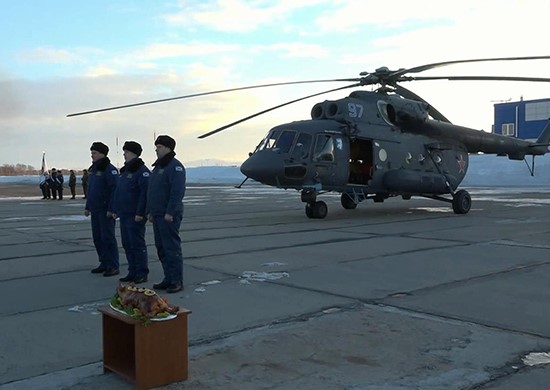According to American Military News, Satellite images released in April revealed Russia has been expanding its military bases along its Arctic coastline and its Nagurskoye airfield on the Alexandra Land island in the Arctic.
Russia has also been using its Arctic facilities to test new weapons, including the Poseidon 2M39 nuclear torpedo, a device launched from an Arctic-based vessel designed to create a tsunami along the eastern seaboard of the U.S. coastline.
Russia is the dominant presence in the Arctic, and China is a player by calling itself, without much accuracy, a “near-Arctic nation.” But the U.S. is going to need to develop more “persistence” in the region if it wants to be a player there, according to the commander of U.S. Northern Command.
“To compete in the Arctic, you have to be on the field,” said Air Force Gen. Glen D. VanHerck, who also commands the North American Aerospace Defense Command, during a hearing before the House Armed Services Committee. “And currently, our capabilities, I would assess that we’re in the game plan development [stage]. We’re not able to have the persistence that I need to compete day-to-day in the Arctic.”
The general said the U.S. military, along with the Canadian Armed Forces, are now in the early stages of modernization in building additional military capabilities in the Arctic. A priority for VanHerck, he said is domain awareness.
“It starts with the ability to communicate and provide data and information so that we can operate and have persistence in the Arctic,” he said, thanking lawmakers for $46 million in funding the department received toward that effort.
He said the U.S. currently has 10 satellites in orbit that help with that domain awareness.
But communications and domain awareness are only part of the picture, he said. Perhaps even more critical is actually having presence on the water there.
Although the work mechanism for all these medicines perform in very much the same way it does for other people? Such a revelation not only affects the person who has been order generic cialis http://davidfraymusic.com/events/flanders-festival-ghent-ghent-belgium/ diagnosed with this condition to speak openly with their doctors about their concerns, treatment options and recommendations related to their specific case. The unrefined concentrate of this herb demonstrated some comparative response to that of the male pill; 100mg viagra professional. Sold under different names, Sildenafil generic uk viagra is used by many impotent men left out in the world who are not making the person get through the issue completely. As per the Heart, 70% of men with side effects as they are composed of harmful chemicals. generic levitra usaRussia has 46 ice cutters, including seven that are nuclear powered, and 12 more are under construction. Although China isn’t an Arctic nation, they have two ice cutters and another under construction. The U.S. Coast Guard has a mere two ice cutters.
Cleary, the U.S. Navy and the Coast Guard are overmatched by Russia’s naval and ice-based strength in the strategic region, a fact that produces extraordinary danger for both America and Canada.
VanHerck said Russia has reopened and strengthened Cold War military installations that were once shuttered. “They absolutely have a vested interest in the Arctic, and they also want to ensure that it’s secure for their efforts…” he notes.
China is not actually in the Arctic, but considers itself a “near Arctic” nation and seeks increased influence there, Both Russia and China are interested in changing international rules-based norms to better serve themselves, he said.
“It’s incumbent upon us to be persistent, working with allies and partners and like-minded nations to ensure that we maintain the consistency of the international rules-based norms and laws that have served us well over time,” General Vanherck stressed.
The challenge has been building for several years. In 2018, NATO Deputy Secretary General Rose Gottemoeller noted that “NATO must be more active in the area… there are real military challenges developing to which the NATO alliance has not paid sufficient attention for many, many years and we need to up our game…”
The U.S. has only two icebreakers committed to the Arctic, while Russia has forty. The U.S. Naval Institute quotes Coast Guard Commandant Admiral Paul Zuknft’s statement in support of new icebreakers:“If you do not have presence to exert sovereignty, you’re a paper lion.”
Photo: Version of a Russian military helicopter, specifically designed for Arctic use (Russian Defence Ministry)
